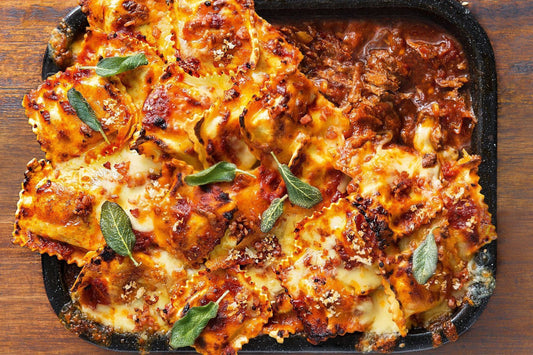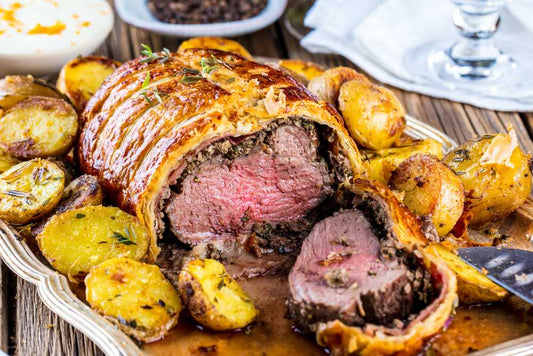Chai tea latte is a popular beverage known for its rich, spicy flavor and creamy texture. Originating from India, this drink combines traditional chai tea with steamed milk and a touch of sweetness. While many people enjoy chai tea latte for its comforting taste, it's important to understand its caffeine content, especially for those monitoring their caffeine intake. This comprehensive guide will explore the caffeine levels in chai tea latte, factors that influence its caffeine content, and how it compares to other caffeinated beverages.
Understanding Chai Tea Latte
What is Chai Tea Latte?
Chai tea latte is a variation of traditional chai tea, which is a spiced tea blend originating from India. The term "chai" simply means "tea" in Hindi, but in the Western context, it refers to a spiced tea blend typically including black tea, cardamom, cinnamon, cloves, ginger, and black pepper. When this tea is combined with steamed milk and often sweetened with honey or sugar, it becomes a chai tea latte.
Ingredients in Chai Tea Latte
The basic ingredients of a chai tea latte include:
- Chai Tea Concentrate: This is the spiced tea base, which can be homemade or store-bought. It’s made by brewing black tea with a mix of spices.
- Steamed Milk: This adds creaminess and mellows the strong flavors of the tea and spices.
- Sweetener: Honey, sugar, or flavored syrups are commonly used to add sweetness.
Caffeine Content in Chai Tea Latte
How Much Caffeine is in Chai Tea Latte?
The caffeine content in a chai tea latte varies depending on several factors, including the type and amount of tea used, the size of the drink, and whether it’s made from a concentrate or brewed fresh. On average, an 8-ounce serving of chai tea latte contains approximately 50-70 milligrams of caffeine.
Factors Influencing Caffeine Content
- Type of Tea: The type of black tea used in the chai blend affects caffeine levels. Traditional chai blends use strong black teas like Assam or Darjeeling, which typically contain about 40-70 milligrams of caffeine per 8-ounce serving.
- Concentration of Tea: If a chai concentrate is used, the caffeine content can be higher due to the concentrated nature of the tea. Concentrates are designed to be stronger and are often diluted with milk.
- Serving Size: The size of the chai tea latte can significantly impact caffeine content. Larger servings will naturally have more caffeine.
Comparison with Other Beverages
To put the caffeine content of chai tea latte into perspective, here’s a comparison with other common caffeinated beverages:
- Coffee: A standard 8-ounce cup of brewed coffee contains approximately 95 milligrams of caffeine.
- Espresso: A single shot (1 ounce) of espresso has about 63 milligrams of caffeine.
- Black Tea: An 8-ounce cup of black tea typically contains around 40-70 milligrams of caffeine, depending on the brand and brewing time.
- Green Tea: Green tea contains less caffeine, with about 20-30 milligrams per 8-ounce cup.
How Caffeine Affects You
Positive Effects of Caffeine
Caffeine is a stimulant that affects the central nervous system. It can have several positive effects, including:
- Increased Alertness: Caffeine helps to improve focus and concentration by blocking adenosine receptors in the brain, which can help to reduce feelings of tiredness.
- Enhanced Physical Performance: Caffeine can increase adrenaline levels, which may enhance physical performance and endurance.
- Mood Improvement: Moderate caffeine consumption can improve mood and may help alleviate symptoms of depression.
Potential Side Effects
While caffeine has its benefits, excessive consumption can lead to some negative side effects:
- Insomnia: Consuming caffeine too close to bedtime can disrupt sleep patterns and lead to insomnia.
- Increased Heart Rate: High doses of caffeine can lead to increased heart rate and blood pressure.
- Digestive Issues: Some people may experience digestive discomfort, including acid reflux or upset stomach, from consuming too much caffeine.
Managing Caffeine Intake
Recommended Caffeine Limits
The general recommendation for caffeine consumption is up to 400 milligrams per day for most adults. This amount is considered safe and unlikely to cause negative side effects. For pregnant women, the recommended limit is generally lower, around 200 milligrams per day, due to potential risks associated with excessive caffeine intake.
Monitoring Your Intake
To manage your caffeine intake, consider the following tips:
- Track Consumption: Keep a log of all caffeinated beverages you consume throughout the day to ensure you stay within your desired limits.
- Choose Decaf Options: If you enjoy chai tea latte but want to reduce your caffeine intake, consider opting for a decaffeinated version of chai tea concentrate or using less concentrate in your latte.
- Be Mindful of Other Sources: Remember that caffeine is also found in other foods and beverages, such as chocolate, certain medications, and energy drinks.
Making a Lower-Caffeine Chai Tea Latte
Using Decaf Tea
One way to reduce the caffeine content of your chai tea latte is to use decaffeinated chai tea. Decaf chai tea provides the same spiced flavor without the caffeine kick, making it a great option for those who are sensitive to caffeine or trying to cut back.
Adjusting Tea Concentration
If you’re using a chai concentrate, you can adjust the amount used to lower the caffeine content. Using a smaller amount of concentrate and adding more milk can dilute the caffeine while still providing the rich flavor of a chai tea latte.
Experimenting with Alternative Milk Options
Different types of milk can impact the overall caffeine experience. While traditional dairy milk is commonly used, alternatives such as almond milk, soy milk, or oat milk can add unique flavors and textures to your chai tea latte. Keep in mind that these alternatives don’t affect caffeine content but can enhance your drinking experience.
Conclusion
Chai tea latte is a flavorful and comforting beverage enjoyed by many, but understanding its caffeine content is crucial for managing your overall intake. With an average caffeine content of 50-70 milligrams per 8-ounce serving, chai tea latte falls somewhere between a cup of black tea and a cup of coffee in terms of caffeine levels. By considering factors such as the type of tea, concentration, and serving size, you can better manage your caffeine consumption and make informed choices about how much chai tea latte to enjoy.
Whether you choose to indulge in a classic chai tea latte or opt for a lower-caffeine version, this beloved beverage offers a delicious way to enjoy the rich spices and creamy texture of a traditional chai.


